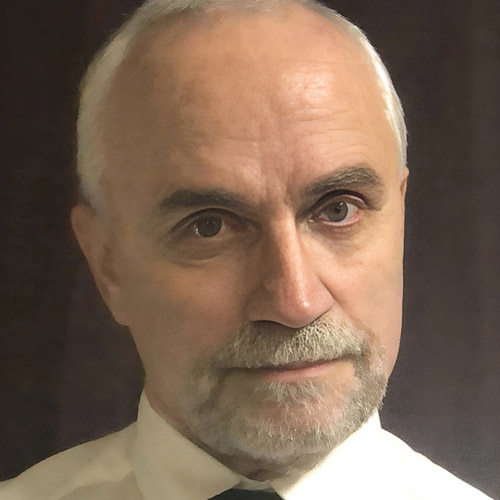AAFP: Evidence-Based Evaluation of Criminal Responsibility
Presented by: Terry Kukor, PhD, ABPP
 This on-demand professional training program on Evidence-Based Evaluations of Criminal Responsibility is presented by Terry Kukor, Ph.D., ABPP, in partnership with The American Academy of Forensic Psychology.
This on-demand professional training program on Evidence-Based Evaluations of Criminal Responsibility is presented by Terry Kukor, Ph.D., ABPP, in partnership with The American Academy of Forensic Psychology.
This program focuses on assessing a defendant’s mental state at the time of the offense as it relates to issues of criminal responsibility (sanity). Specific topics include practical assessment of the defendant’s understanding of the nature, quality, and wrongfulness of their behavior; objective and subjective standards of moral wrongfulness; evidentiary basis for inferences about wrongfulness; amnesia and sanity; using collateral information; psychological testing in criminal responsibility evaluations; the relationship between symptoms and mental state at the time of the alleged offense; dealing with complications (e.g., denial of involvement in the alleged offense); accounting for contradictory data; formulating opinions; and malingering in criminal responsibility evaluations. A practice model for the assessment of criminal responsibility is introduced, emphasizing gathering and evaluating the evidence necessary to address the functional legal capacities in question. Practical report-writing strategies are reviewed as well. Clinical cases and vignettes provide participants with valuable opportunities to apply the conceptual framework to case detail in criminal responsibility evaluations.
Upon completion of this training, participants will be able to:
Key topics covered in this training include:
Practical assessment of the defendant’s understanding of the nature, quality, and wrongfulness of his/her behavior
Objective and subjective standards of moral wrongfulness
The evidentiary basis for inferences about the wrongfulness
Amnesia and sanity
Using collateral information
Psychological testing, insanity evaluations
Relationship between symptoms and mental state at the time of the alleged offense
Dealing with complications (e.g., denial of involvement in the alleged offense)
Accounting for contradictory data and formulating opinions
Malingering insanity evaluations

We are proud to partner with the American Academy of Forensic Psychology (AAFP) for this training. AAFP is a non-profit organization of board-certified forensic psychologists whose mission is to contribute to the development and maintenance of forensic psychology as a specialized field of study, research, and practice. The Academy does this by providing high-quality continuing education workshops, providing a forum for the exchange of scientific information among its members, and conferring awards upon outstanding students and practitioners in the field of forensic psychology.
Palo Alto University, Continuing & Professional Studies (CONCEPT) is approved by, recognized by, or maintains sponsorship provider status with the following boards and agencies. We maintain responsibility for all content in our CE/CPD programs. For more information, visit here.
American Psychological Association (APA): Approved sponsor of continuing education for psychologists.
Association of Social Work Boards (ASWB): Approved continuing education provider (ACE program, Provider #1480), 11/22/2023–11/22/2026.
Canadian Psychological Association (CPA): Approved to sponsor continuing education for psychologists.
National Board for Certified Counselors (NBCC): Approved Continuing Education Provider (ACEP No. 7190).
Palo Alto University, Continuing and Professional Studies (CONCEPT) is approved by the American Psychological Association to sponsor continuing education for psychologists. Palo Alto University, Continuing and Professional Studies (CONCEPT) maintains responsibility for this program and its content. Palo Alto University, Continuing and Professional Studies (CONCEPT), is approved by the Canadian Psychological Association to offer continuing education for psychologists. Palo Alto University, Continuing and Professional Studies (CONCEPT), SW CPE is recognized by the New York State Education Department’s State Board for Social Work as an approved provider of continuing education for licensed social workers #SW-0356 and the New York State Education Department’s State Board for Mental Health Practitioners as an approved provider of continuing education for licensed mental health counselors. #MHC-0073. Palo Alto University, Continuing and Professional Studies (CONCEPT) has been approved by NBCC as an Approved Continuing Education Provider, ACEP No. 6811. Programs that do not qualify for NBCC credit are clearly identified. CONCEPT Professional Training, #1480, is approved to offer social work continuing education by the Association of Social Work Boards (ASWB) Approved Continuing Education (ACE) program. Organizations, not individual courses, are approved as ACE providers. State and provincial regulatory boards have the final authority to determine whether an individual course may be accepted for continuing education credit. CONCEPT Professional Training maintains responsibility for this course. ACE provider approval period: 11/22/23-11/22/26. Social workers completing this course receive (clinical or social work ethics) continuing education credits.